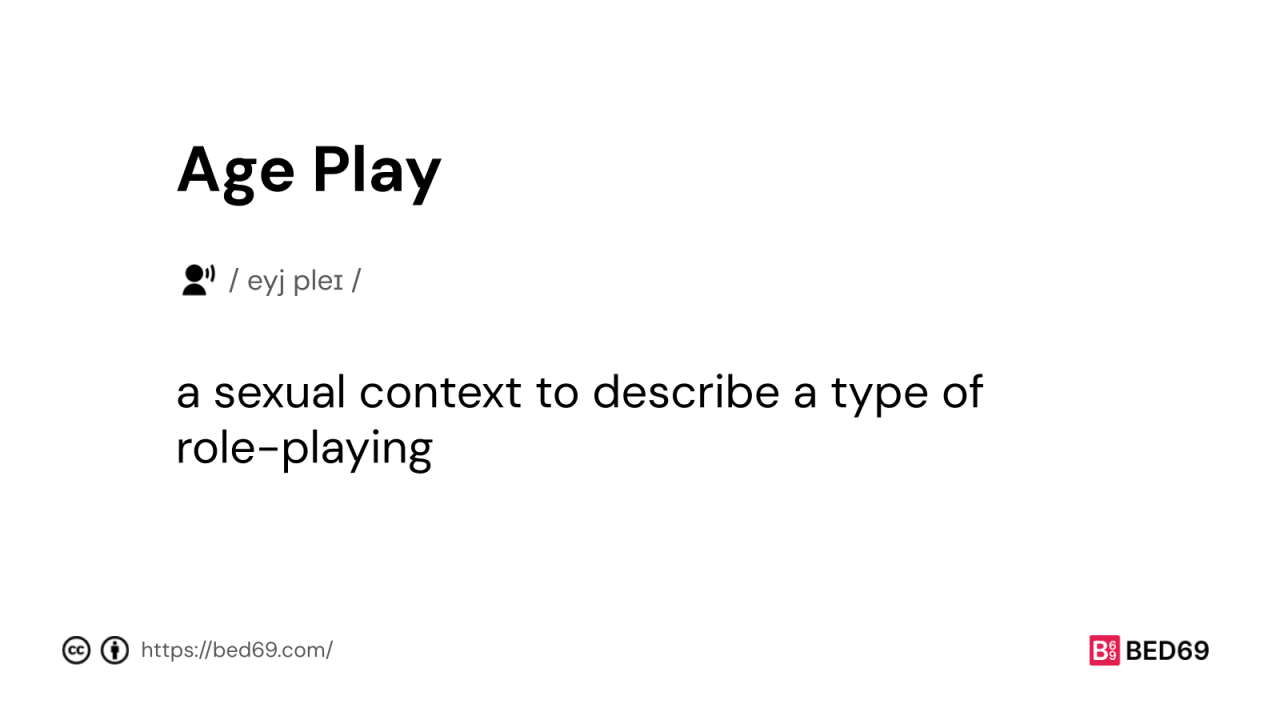What is Age Play?
Age Play refers to a form of BDSM (Bondage, Discipline, Sadism and Masochism) role-play in which one partner takes on the role of a child, teenager, or elderly person, and the other partner takes on the role of a caretaker or authority figure such as a parent, teacher, or grandparent. The goal is to explore and experience power dynamics, submission and dominance, and create a dynamic in which one partner is “in control” and the other is “submissive.”
Age Play pronunciation: / eyj pleɪ /

What does Age Play involve
Age play involves role-playing where one partner acts as a child, teenager, or elderly person, while the other embodies a caretaker or authority figure like a parent or grandparent. This dynamic explores power, submission, and control, emphasizing a nurturing or disciplinary relationship. Props like toys, diapers, or specific clothing are used to enhance the role-play experience, which can be either sexual or non-sexual in nature.
In sexual contexts, elements like incestuous scenarios may be integrated into the play, with older roles mirroring familial relationships. Despite misconceptions, age players are not pedophiles; rather, they seek comfort in expressing childlike emotions and relinquishing responsibilities, fostering warmth and fulfillment in these unique relationships.
Common misconceptions about Age Play
Age play, especially when it involves a person playing a child, is often misunderstood. Age players aren’t pedophiles; they don’t seek relationships with actual children. Those who play as kids do so to express their inner child, shedding adult responsibilities.
The caretaker partners find joy in nurturing, teaching, and comforting their “younger” counterparts. Age play relationships are typically loving, cozy, and satisfying for everyone engaged. It’s about exploring roles, trust, and care within a safe and consensual dynamic.
Misconceptions surrounding age play can arise due to its nature of role-playing different ages. However, it’s crucial to understand that this practice is about power dynamics, not inappropriate desires. By respecting boundaries and consent, age play participants create fulfilling and respectful connections that cater to emotional needs and desires rather than inappropriate intentions.
Explore other interesting terms:
